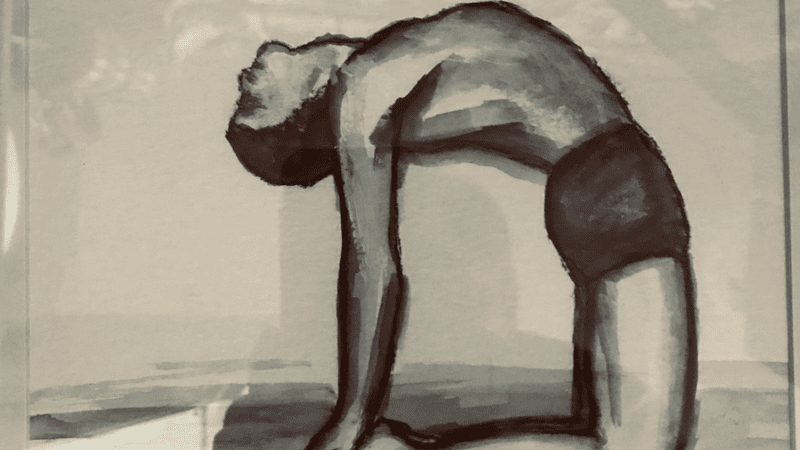
Could Music Hold the Key to Unlocking Our Spiritual Journey?
Exploring Music's Profound Influence on the Soul - Lucy Couser
Reading time: 4 minutes
Is Music The Key To Spirituality?
I think a lot of people need music in their lives and it is a place for people to escape from the harsh realities of the world. I have many times found it a scapegoat when I don’t want to communicate with people and a way for me to focus on things that I need to stay sane in this world.
Even the world-famous composer and conductor Sir James MacMillan, who holds a professorship at St. Andrews, has quite often described music as “the most spiritual of the arts.” This claim has made me think deeply and led other academics to actually consider this statement as true.
After countless comparisons, they have found that at the centre of some religions, things like community and congregations are at the heart and this is the same with music, where times like being together and also not being together can have the same feelings of rethinking what is important and rediscovering the importance of community.
Within this article, we will further delve into the question of whether music is the key to spirituality and how both worlds meet through their rich history and bright future:
From Past to Present
Music seems to reach every corner of the world and has been around since before its presence was first confirmed in Africa. The term itself is culturally universal, depicts the human condition and can show the evolutionary and societal evolution we have had. We have a song for every occasion, whether it's to celebrate life or death.
According to Hindu mythology, "Naadbrahama" is the first sound that ever existed, permeating the entire universe and thought to be unstruck. The second myth in Hindu mythology is that the art of music on earth came from heaven and the “Sage Narada” played a key role in this gift.
The history of music dates back to the Vedic era. During the Vedic era, the idea of Naadbrahma was highly accepted. Another source of the word "Svara" is Vedic literature, specifically the "Sam Veda." The earliest raga originated from the Sam Veda, which is linked to musical origins. The Sam Veda, the source of Indian classical music and Vedic chants, is replete with melodies and chants.
This history of music is rich and filled with examples from around the world but many things from the ancient world remain true to this day, such as music being a part of both happy and sad moments.
As mentioned above, we have a song, a melody and a tune for every occasion. Music’s history is important for humanity and there is a musicology analysis. We are so interested in this concept that we have begun to study it for decades.
Plato, the ancient Greek philosopher, said, “A potent instrument than any other for education.”. The growth of a human’s brain is greatly affected academically, emotionally, physically, and spiritually by music. It is essentially a gift to us and people can express their emotions and cultural traits through music, which also serves as a medium for idea sharing. God and music are connected.
It offers a peek at something that exists outside the bounds of materialism. Although we are unable to see, touch, or consume it, its presence can still be felt deep within the soul.
Music vs Spirituality
Music is a spiritual expression of universal nature and play. As music conveys emotion, ideas, religion, and culture, it is essential for meditation and spirituality. "Music is the mediator between the spiritual and the sensual life," according to Ludwig Van Beethoven. Spiritual music is any type of music that aids in our reconnection with our true selves.
This just solidifies the notion that there is no right or wrong way to be spiritual. If music brings you closer to your divine self and makes you a better person, then there can't be someone who is so sure that music and spirituality are one.
One of the main tools for finding spiritual support is music. It is an essential component of many people's everyday routines and lives. It is a powerful tool that brings people, life and love all together.
Music vs Health
As a form of therapy, music can help with a variety of issues, including depression, anxiety, trauma, dementia and much more. There is research that points us in the direction that music heals the soul and the physical body.
The use of music in meditation workshops is a testament to its ability to enhance spiritual practices. Certain musical compositions can facilitate a meditative state, helping individuals focus their minds and deepen their spiritual music awareness. The rhythmic and harmonic elements of music can create a conducive environment for introspection and contemplation.
Music is a key component in many meditation workshops, helping participants stay upbeat and aware of their emotions. Several nations, including China, Greece, Rome, and ancient India, employed music therapy to enhance public health.
Seneca and Cicero wanted to outlaw certain destructive musical compositions that had an impact on social behaviour, which speaks to their belief in the profound impact of music. In the context of Plato, the regulation of music may be seen as an acknowledgement of its influence on the moral and spiritual fabric of society.
Music vs Culture
This moves us to my next point that cultures share their music types and believe different sounds can be used in healing for centuries. The close-knit relationship between music and culture cannot be overstated. Music has an impact on how people perceive culture and reflects these shifts in youth culture, migration, and racial integration.
The influence that a person's culture has on their ability to recognise, feel, and remember music is reflected in their culture's music cognition.
The interconnectedness of the modern world has facilitated the exchange of musical influences across cultures. This cross-cultural pollination has led to the creation of hybrid genres, fusions of traditional and contemporary sounds, and collaborative projects that transcend geographical boundaries.
The global appreciation of diverse musical traditions enhances cultural understanding and promotes a shared appreciation for the universal language of music and people feel a deep-rooted spiritual music connection to this physical world.
Final Thoughts
In the tapestry of human existence, music emerges as a universal language that transcends time, health, culture, and spirituality. From ancient hymns to contemporary beats, music has proven to be a profound force shaping our collective consciousness and a way to connect us to our spirituality. Sir James MacMillan's claim that music is "the most spiritual music of the arts" resonates through history, echoing the sentiments of Beethoven and Plato.
Beyond its artistic expression, music serves as a therapeutic ally, offering holistic treatments to those facing mental health challenges and physical battles. Its ability to mend both soul and body is evident in ancient healing practices and modern meditation workshops and it further confirms that music is the key to more than just spirituality.
In the interplay between music and culture, we witness a dynamic exchange of diverse traditions, fostering understanding and a global appreciation for the universal language of music. Whether seeking spirituality, healing, or cultural connection, music provides an unparalleled sanctuary that goes beyond the audible, reaching into the depths of the human mind and soul.
In the final cadence, music stands as a resounding affirmation of our deep-rooted spiritual connection to this physical world, where even the choice of which corest top becomes a personal expression within the grand orchestration of life.





